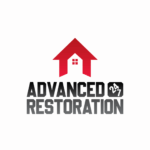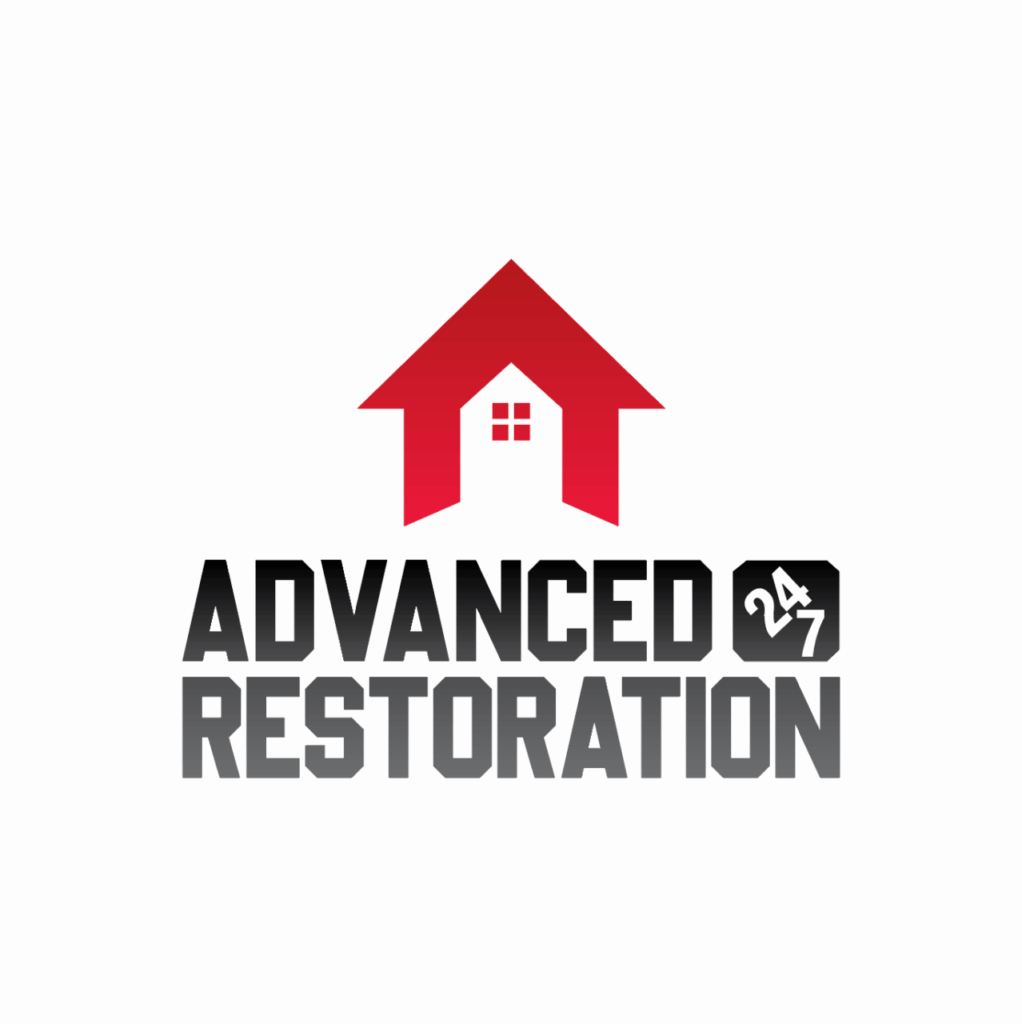Regarding sewage cleanup, protective gear is not an optional precaution but an absolute necessity.
Imagine a pipe bursting in your basement, flooding the area with raw sewage. As you stand there, contemplating the cleanup process, it becomes apparent that this task should not be taken lightly. The dangers lurking within the sewage are far more insidious than meets the eye.
In this discussion, we will explore the critical importance of wearing protective gear during sewage cleanup and the potential risks that await those who underestimate its significance.
Health Risks of Sewage Exposure
Exposing yourself to sewage can pose significant health risks that must be addressed with caution and proper protective gear. Regarding sewage cleanup, it’s crucial to understand the potential dangers lurking within. One of the most pressing concerns is preventing cross-contamination, as sewage contains harmful microorganisms and pathogens that can easily spread to other surfaces and people. These contaminants can cause a range of health issues, such as gastrointestinal problems, skin infections, respiratory ailments, and even serious diseases like hepatitis A and tetanus.
To ensure your safety during sewage cleanup, it’s essential to take appropriate safety precautions. Firstly, wearing personal protective equipment (PPE) is crucial. This includes gloves, goggles, face masks, and protective clothing that covers your entire body. These items act as barriers, minimizing direct contact with sewage and reducing the risk of contamination. Additionally, it’s important to avoid touching your face, mouth, or eyes while working in the contaminated area, as this can facilitate the entry of harmful pathogens into your body.
Furthermore, proper hygiene practices are vital in preventing the spread of sewage-related illnesses. Thoroughly washing your hands with soap and clean water before and after handling sewage is imperative. Also, disinfecting all tools and equipment during cleanup will help eliminate any lingering bacteria or viruses. It’s also recommended to keep separate cleaning supplies solely for sewage cleanup to prevent cross-contamination with other household items.
Contamination From Harmful Pathogens
When dealing with sewage cleanup, it’s crucial to be aware of the potential contamination from harmful pathogens. Sewage contains many bacteria, viruses, and parasites that can pose serious health risks if improperly handled. To ensure your safety and the safety of others, it’s important to take necessary precautions and prevent cross-contamination.
Here are some key points to consider:
- Wear protective gear: When working with sewage, always wear appropriate protective gear such as gloves, goggles, and masks. This will help minimize direct contact with the pathogens and reduce the risk of infection.
- Use disinfectants: After cleaning up sewage, it’s essential to disinfect the affected areas thoroughly. Use appropriate disinfectants that are effective against the pathogens present. This will help kill any remaining bacteria or viruses and prevent their spread.
- Proper disposal: Dispose of contaminated materials safely and responsibly. Bag and seal all waste properly before disposing of it in designated areas. This will prevent the release of harmful pathogens into the environment.
- Avoid cross-contamination: Take extra care to prevent cross-contamination during sewage cleanup. Keep contaminated materials separate from clean areas and surfaces. Use different cleaning tools and equipment for each area to minimize the risk of spreading pathogens.
- Seek professional help: If you’re unsure or uncomfortable handling sewage cleanup, it’s best to seek professional help. Experienced professionals have the knowledge, skills, and proper equipment to handle sewage cleanup safely and effectively.
Potential for Respiratory Ailments
To minimize the risk of respiratory ailments, it’s important to take precautions when dealing with sewage cleanup. Sewage contains harmful pathogens and gases that can pose serious health risks if inhaled. The potential for respiratory ailments is high when exposed to these hazardous substances, so respiratory protection is crucial during sewage cleanup.
Respiratory protection involves wearing the appropriate gear to prevent inhalation of harmful substances. This includes wearing a mask or respirator that can filter out airborne particles and gases. Wearing this protective equipment can significantly reduce the risk of respiratory ailments.
In addition to respiratory protection, there are other prevention measures you can take to safeguard your respiratory health during sewage cleanup. One important step is ensuring proper ventilation where the cleanup occurs. This helps to dissipate any toxic gases or fumes, minimizing the chance of respiratory ailments.
Another preventive measure is to avoid direct contact with sewage and its fumes. This can be achieved by wearing gloves and other protective clothing that covers your skin. Doing so can protect yourself from potential respiratory ailments caused by exposure to harmful substances.
It is also essential to follow proper hygiene practices after sewage cleanup. Thoroughly wash your hands and any exposed areas of skin to remove any contaminants that may have come into contact with your body. This further reduces the risk of respiratory ailments and ensures your overall well-being.
Skin Irritations and Infections
Have you ever wondered how sewage cleanup can lead to skin irritations and infections? When dealing with sewage, there are certain risks involved that can affect your skin.
Here are some reasons why skin irritations and infections can occur during sewage cleanup:
- Exposure to harmful microorganisms: Sewage contains various bacteria, viruses, and fungi that can cause skin infections. These microorganisms can enter cuts or abrasions on your skin, leading to infections such as cellulitis or impetigo.
- Contact with toxic chemicals: Sewage often contains toxic chemicals and hazardous substances. Direct contact with these substances can cause skin irritations, chemical burns, and dermatitis.
- Allergic reactions: Some individuals may be allergic to certain components present in sewage, such as mold or certain bacteria. Contact with these allergens can lead to skin rashes, itching, and hives.
- Irritation from sewage debris: Sewage cleanup involves handling debris and waste materials. These materials can be abrasive and cause physical irritation to the skin, resulting in redness, swelling, and discomfort.
- Poor hygiene practices: During sewage cleanup, it’s crucial to maintain good hygiene practices to prevent skin infections. Failure to do so can increase the risk of contamination and the spread of harmful microorganisms.
To minimize the risk of skin irritations and infections during sewage cleanup, it’s important to take preventive measures and follow proper safety protocols. Wearing appropriate protective gear, such as gloves, boots, and coveralls, can provide a barrier between your skin and the sewage. Regular handwashing with antibacterial soap and disinfectants can help remove harmful microorganisms from your hands and prevent their transfer to other parts of your body.
If you experience skin irritations or infections after sewage cleanup, seeking medical attention is essential. Treatment options may include topical antibiotics, antifungal creams, or corticosteroids to alleviate symptoms and prevent further complications.
Dangers of Ingesting Sewage
Exposing yourself to sewage can pose significant dangers if ingested. When you come into contact with sewage, whether through contaminated water or contaminated food, you expose yourself to ingestion risks that can have serious consequences for your health. Sewage contains many harmful pathogens, bacteria, and viruses that can lead to waterborne illnesses.
Ingesting sewage can introduce these harmful microorganisms into your digestive system, where they can multiply and cause infections. Waterborne illnesses such as gastrointestinal infections, cholera, hepatitis A, and norovirus are commonly associated with sewage contamination. These illnesses can cause symptoms like diarrhea, vomiting, stomach cramps, fever, and dehydration, which can be especially dangerous for vulnerable populations like children, the elderly, and those with weakened immune systems.
Furthermore, sewage can contain toxic chemicals and heavy metals that can be harmful if ingested. These substances can cause long-term health problems, including organ damage, neurological disorders, and even cancer. You expose yourself to these toxins by ingesting sewage, increasing the risk of developing these health issues.
To protect yourself from the dangers of ingesting sewage, it’s crucial to take proper precautions when dealing with sewage cleanup. Wearing personal protective equipment, including gloves, goggles, masks, and protective clothing, can significantly reduce the risk of ingesting sewage-contaminated substances. Additionally, practicing good hygiene, such as washing your hands thoroughly with soap and clean water, is essential to prevent the spread of harmful pathogens.
Long-Term Health Implications
When dealing with sewage cleanup, it’s important to consider the potential long-term health implications. While the immediate dangers of ingesting sewage are concerning, the occupational hazards associated with prolonged exposure can have lasting effects on your health. To protect yourself and ensure your well-being, taking the necessary safety measures is crucial.
Here are some potential long-term health implications to be aware of:
- Infections: Exposure to sewage can lead to various infections, including gastrointestinal infections, skin infections, and respiratory infections. These infections can have long-lasting effects on your overall health and may require extensive medical treatment.
- Chronic illnesses: Prolonged exposure to sewage can increase the risk of developing chronic illnesses such as asthma, bronchitis, and other respiratory disorders. These conditions can significantly impact your quality of life and may require ongoing medical management.
- Toxic exposure: Sewage contains many harmful substances, including bacteria, viruses, parasites, and toxic chemicals. Continued exposure to these toxins can lead to long-term health issues, including organ damage and increased cancer risk.
- Mental health impacts: Dealing with sewage cleanup can be mentally and emotionally challenging. The stress and anxiety associated with the job can have long-term effects on your mental health, leading to conditions such as depression, anxiety disorders, and post-traumatic stress disorder (PTSD).
- Reduced immune function: Constant exposure to sewage can weaken your immune system, making you more susceptible to infections and illnesses in the long run. This can result in frequent illnesses and a reduced ability to fight infections.
To minimize the risks associated with sewage cleanup, it’s essential to implement proper safety measures. Wearing appropriate protective gear, such as gloves, masks, goggles, and waterproof clothing, is crucial to prevent direct contact and inhaling harmful substances. Additionally, practicing good hygiene, such as washing hands thoroughly and disinfecting equipment, can further reduce the risk of long-term health implications. Remember, prioritizing your safety and well-being is essential when dealing with sewage cleanup.
Wrap-Up
So remember, when it comes to sewage cleanup, don’t underestimate the importance of protective gear.
It’s like a shield that guards you against the hidden dangers lurking in the murky waters. Without it, you’re vulnerable to harmful pathogens, respiratory ailments, skin irritations, infections, and long-term health implications.
So, suit up, protect yourself, and stay safe against sewage.
Advanced 24/7 Restoration’s mission is to provide unparalleled care and support to our valued clients. Delivering the best solutions for your property restoration needs. Our vision is to be the top-rated damage restoration company in Denver, known for our exceptional services, professionalism, and dedication to customer satisfaction. Water damage, fire damage, flood damage, and more.
- This author does not have any more posts


